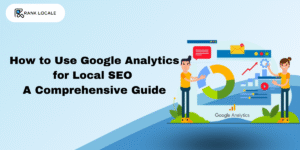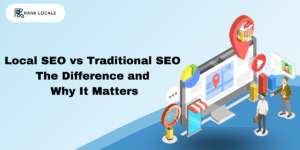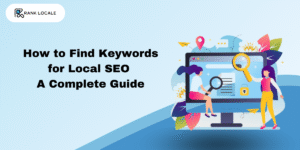In this digital era, having an online presence is crucial for businesses that want to stay ahead for the long term, especially for small businesses. For this purpose, local SEO is beneficial.
If you’re not performing a local SEO on your website and hope to gain more traffic, it’s all in vain. Because, performing local SEO is crucial for local businesses to grow more, without this, you can miss out on your potential customers getting connected with you.
If you’re not aware of or have a lack of skills, here’s a guide for you that helps you understand better what is local SEO, how it’s different from simple SEO, and how it works for gaining higher visibility in search results. So join us, in this comprehensive guide.
What is Local SEO and Why is it Important?

Local SEO is also known as the local search engine optimization process. It is a method of optimizing your website to gain more visibility and traffic from local search Google. The word local means, the websites are locally ranked in specific geographic areas in search results in specific areas not all over the world. Its main purpose is to locally rank websites and get more traffic online.
Local SEO is important for businesses as it helps them to connect with their target audience at the local level. As more people are now utilizing the internet to find their specific product or service, having a strong online presence with updated SEO skills can drive more traffic to your website.
Another reason is that if you have a strong online visibility in your area, you can easily build trust and credibility with them. It also boosts you to compete with your larger competitors of local presence.
What is the Difference Between SEO and Local SEO?
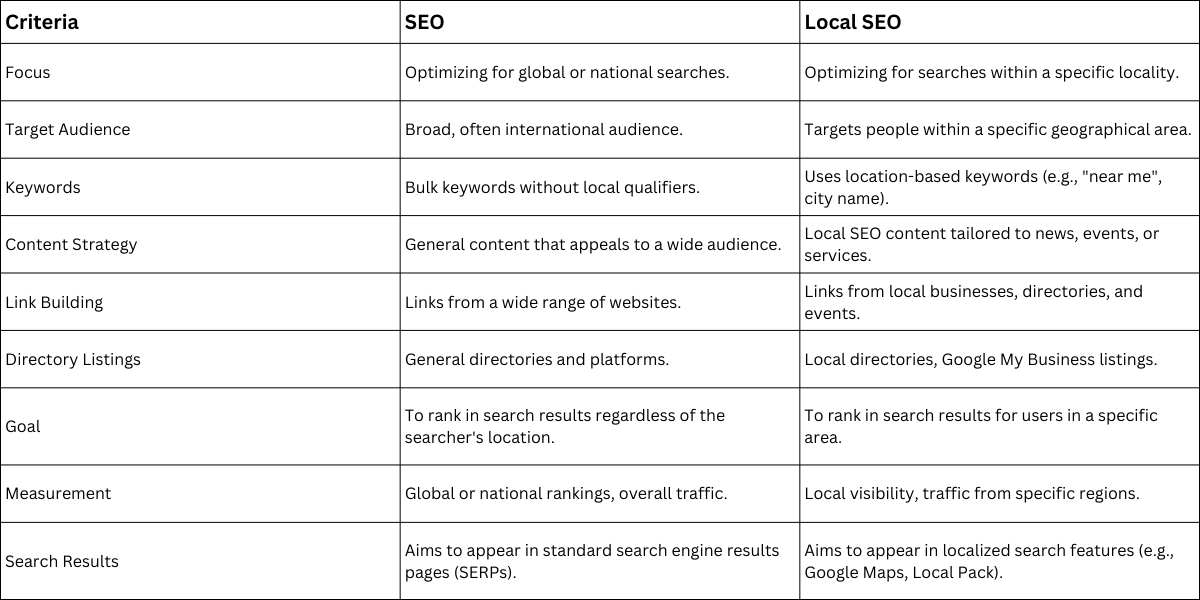
What are the Key Factors of Local SEO?
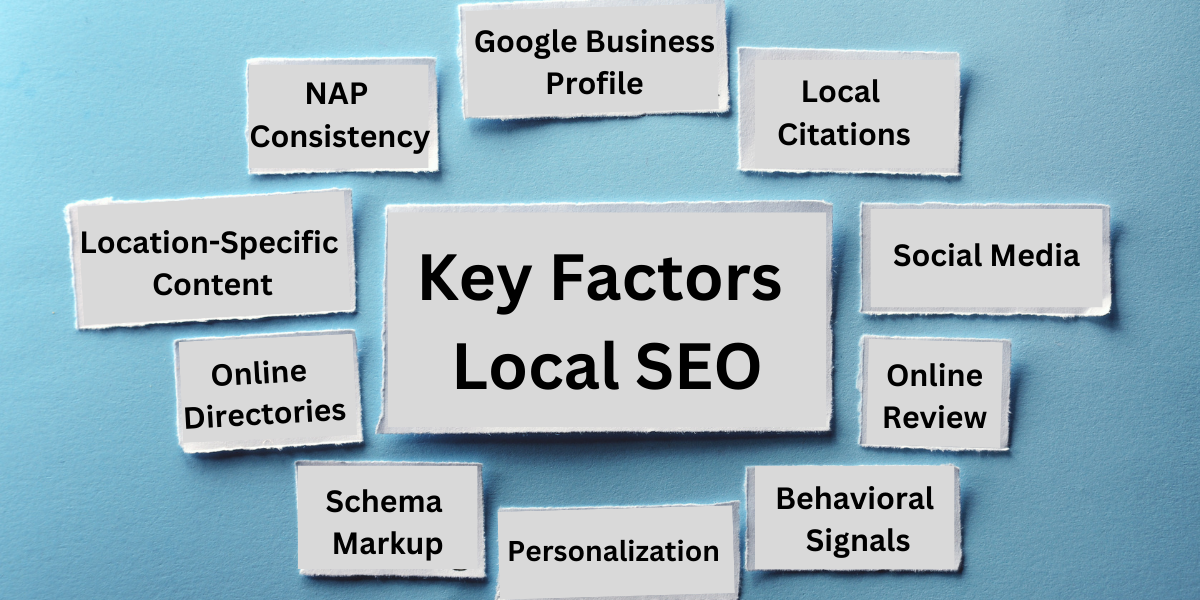
Several key local SEO factors contribute together to enhance local growth and mark success. These factors are:
Google My Business
GMB is a free tool provided by Google. It’s one of the most important factors for ranking websites on local searches and also on Google Maps.
NAP Consistency
NAP is pronounced as Name, Address, and Phone number. It’s important to maintain this consistency on all sites to gain the trust and legitimacy of your website.
Local Citations
local citations are the mentions of your brand name, address, and phone number which are added on other websites. Adding your mentions in other websites which are ranked, also helps you boost your traffic online.
Online Reviews
Online reviews are also a great way to enhance your website traffic. When someone searches for your website online, they first read reviews on your site. Having positive reviews can significantly increase your website ranking.
Social Media
Social media is also a great source of traffic on your website. Make sure your social media channels are activated with the same name and logo as you have on your website. This way people find ease in searches for you online.
Location-Specific Content
In local SEO, optimizing for location-based keywords is very important. The main purpose of it is to enhance your appearance on the local (SRP search result pages). Incorporating location-based keywords in the form of blogs, and web copy can significantly improve your website performance.
Schema Markup
Adding schema markup in your website code helps Google to understand the important information on your website. This information includes name, address, phone number, and others.
Online Directories
Online directories are also a great way to boost your website’s local SEO performance by listing them. These directories are Google My Business, Yelp, and Yellow Pages. Google Maps start rating is also effective in this way.
Behavioral Signals
It’s all about the actions customers take on your website. How much they engaged with your website, CTR, bounce rate, and local business listing. To improve your website traffic make sure to better these behavioral signals that have an impact on your ranking.
Personalization
Personalization plays a big role in local search engine websites. Search engines use data such as location, search history, and interests to provide personalized results to users. By understanding your target audience and catering your content to their specific needs and interests, you can improve your chances of showing up in relevant local searches.
How Does Local SEO Work?
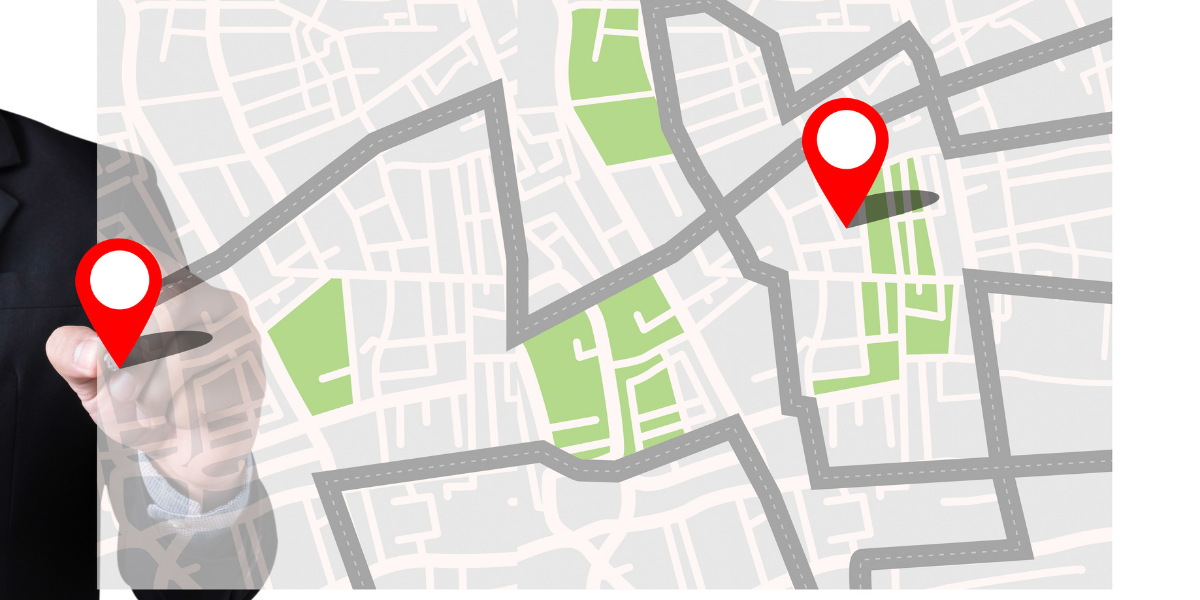
The local SEO simply works like a normal Google search. When people search on Google related to their specific query, it scans through its index and provides the best results for that query. The local search algorithm plays a crucial role in it. This algorithm plays three important roles: relevance, prominence, and Distance.
The relevance is, how much your keyword research is relevant to the queries made by users and the words they used in their search. Prominence is how relevant and important it is for potential customers from Google’s perspective. Distance is about how far is your website from your original expectation when they search for it.
After that, Google plays two types of search results for local searches. These are:
- Local Pack: It’s a Google feature that shows the top local Google listing website and the map on top.
- Organic Search Results: These search results are blue highlighted links or content that we always see on Google.
For instance when you search for “junk food near me”. It shows the local pack at the top, and organic search results under it. But it doesn’t mean that Google only shows city, state, or near-me words on the top. It also checks whether the intent of the word is powerful, and then it also shows the local pack on the top.
How to Do Local SEO?

If you want to do local SEO for your business, here is a local SEO checklist of how to perform it well:
Do Local Keyword Research
In local SEO, make sure to utilize localized-centric keywords that have the highest volume. These geo keywords help businesses grow their businesses in local search results, specifically generated for the state or city in which it’s currently delivered. Naturally, incorporate them in your website, meta description, title, and tags.
Research Your Competitors
Keeping an eye on your competitors is important before starting local SEO. Check out which keywords, content, and how much time they are posting on it. After having this information you can get information on which keywords they’re ranking and you can utilize these keywords. One of the best ways is to use the SEMrush tool and use the organic search traffic section for a better outcome.
Check Metrics of Local Keyword Research
After researching, make sure to track the website’s progress and make a final report. This can be done after monitoring local keyword ranking website traffic from local resources and social media.
The widest tools for local keyword research are Google My Business Insights, SEMrush, and Google Analytics.
Use Google Autocomplete
After doing keyword research, just don’t rely on it. Use the Google autocomplete feature that is provided by Google in their search. This feature helps you generate a list of potential keywords and phrases searched by users that are relevant to your website.
Utilize Google Keyword Planner
Make sure to use Google keyword planner while searching and looking for keywords for your local SEO. Look for keywords that have high search volume and low competition. There are chances that you can also rank these keywords to increase your website traffic in local searches.
Optimize your Google Business Profile
This is a very important step for optimization. Every business either small or large must optimize their Google business profile (if have). This includes filling out all information about your business in it. Just ensure that the information you provide is accurate and consistent.
Get local (NAP) Citation
These SEO local NAP citations are important for local SEO. As they build trust and credibility with your customers. Ensure to enlist your NAP on popular directories such as Yelp, Citysearch, and Yellow Pages.
Encourage Online Review
Positive online reviews are the mainstream success of online small local businesses. Use these reviews on social media and encourage them to share their thoughts, as a thankyou note. This way, other visitors will engage with your business and show their interest in your product or services.
Refine Your On-page SEO
Although, local SEO for small businesses is crucial. On-page optimization of your website is on higher property. Make sure to utilize location-based keywords in your title, meta description headings, and URLs. So, that you appear on the top of Google search results.
Build Backlinks
Another important factor to consider in local SEO is creating high-authority backlinks. These are the links from other websites that lead to your website. They build the authority of your website to rank higher in search engine results. So make sure to target websites that have good authority to gain credibility on your website.
Monitor Local Listings
It’s important to regularly monitor your website’s business listing for online directories and social media platforms to ensure that they are accurate and up to date. This will not only be helpful in local SEO but also help your potential clients or customers connect with the right information about your business.
What are the Benefits of Local SEO?

Local SEO provides various benefits to local-based small businesses. These advantages are:
- It improves visibility by ensuring that your business is prominently appeared on search results.
- Local SEO builds qualified leads that improve conversion rates. The higher the conversion rate the more revenue it will generate.
- Small businesses that invest in local businesses can gain an advantage over competitors who didn’t adopt the right local SEO strategy.
- It increases targeted traffic by connecting local customers in the specific area and driving them to purchase your product and services.
- Local SEO can also benefit from the local community in their area and promote their business through them.
- Adding more reviews on your social media platforms boosts credibility with your customers.
- Local SEO is based on geo-specific areas which means you don’t need to pay much for advertising.
- With local SEO you can increase ROI that has long-lasting on your overall revenue.
6 Best Local SEO Tools to Boost Your Website Traffic
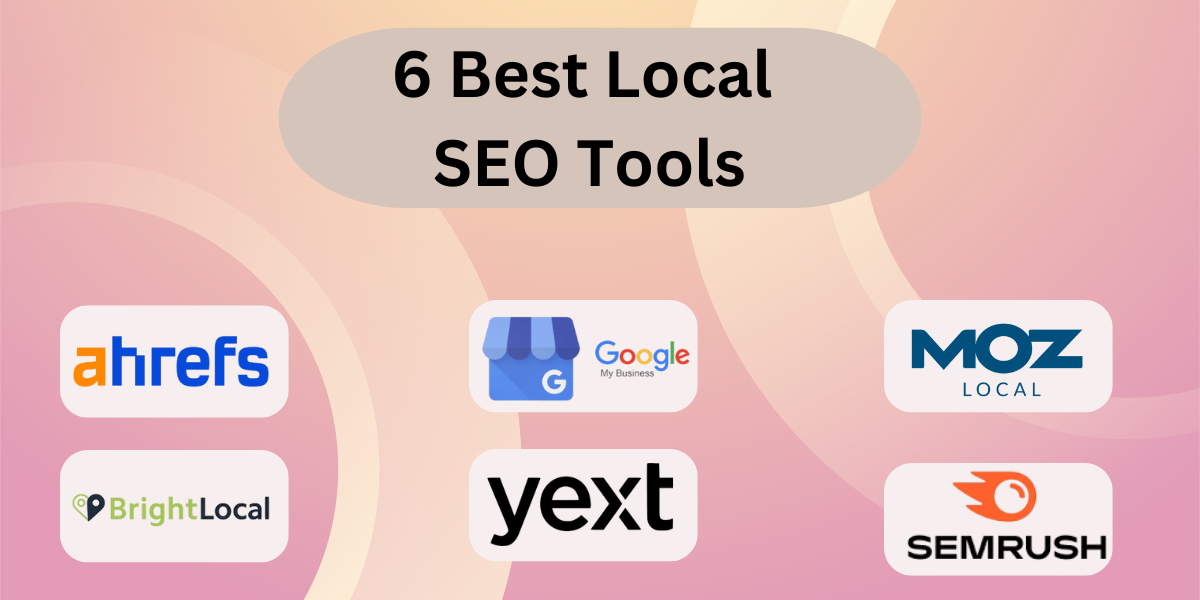
- SEMrush: This tool helps businesses find the most searched geo-tagging keywords, find quality backlinks, and do competitor analysis. This tool is essential for optimizing local SEO strategies and generating more traffic on your website.
- Moz Local: Moz Local SEO tool helps businesses manage their online reputation management by ensuring consistent listing on different platforms. It ultimately improves local search visibility and drives more traffic.
- Ahref: It’s a popular SEO tool that provides an in-depth analysis of keywords, backlinks, and your rivals’ organic traffic. For local SEO, this tool is a power supply for optimizing websites by targeting geo-tagging keywords.
- BrightLocal: BrightLocal offers a range of tools for local SEO, including rank tracking, citation building, and review management. These features can significantly enhance a business’s online visibility and attract more local customers.
- Google My Business: GMB SEO tools are one of the best tools for local businesses. It helps them build a Google business profile so that more customers get to know about them by locally appearing on Google Maps and search results.
- Yext: It’s another powerful tool for local businesses to maintain their digital presence. By providing current and up-to-date information on different online platforms and directories. With this tool, businesses can maintain data consistency easily which helps them improve their local search ranking and drive website traffic.
Final Thoughts
Local SEO is a best practice for businesses who want to drive traffic to their website specifically in some regions. The importance of it is not only limited to authority, but it also builds trust and credibility within your customers and in your community, which ultimately drives more traffic and gets potential customers.
We hope that this blog post finds you well in understanding the basics of local SEO and tools that help you in the long run.
If you can’t perform local SEO by yourself consider contacting an expert local SEO company for better results.


